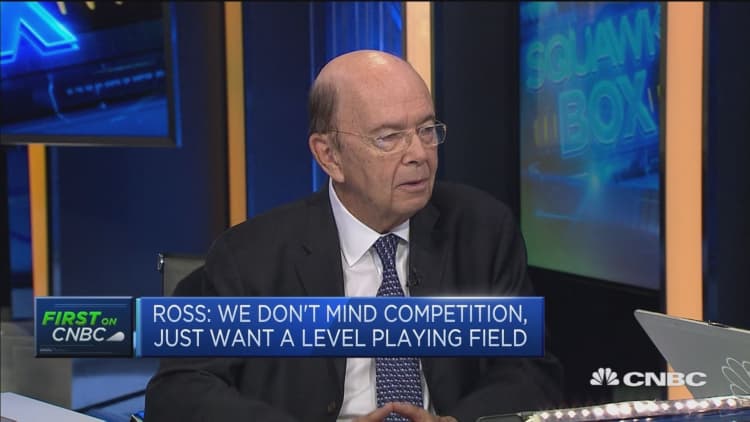
The United States will see its gross domestic product rise by 1 percent if the government can get tax reform "right," according to the commerce secretary.
Getting U.S. tax reform right is important, because it could add nearly $3 trillion in federal government revenue in the next decade, Wilbur Ross said on Wednesday.
Beyond the federal budget and the lifting of the debt ceiling, the tax program is the "single-most important thing," Ross told CNBC's "Squawk Box."
Effective tax reform will "increase the gross domestic product growth by 1 percentage point, so 100 basis points," he said, adding that in 10 years, that would amount to "$10 trillion more GDP, $3 trillion more revenues to the federal government."
"Those are gigantic numbers even for a country the size of the U.S.," he said, "so the tax changes could be transformative events."
Passing a comprehensive tax reform, one of President Donald Trump's key campaign promises, is a crucial focal point for the Administration, particularly following the repeated failures to repeal and replace Obamacare.
Trump and House Republican leaders plan to introduce what they call a "framework for tax reform" on Wednesday.
That framework would reportedly include a major cut to the corporate tax rate, bringing it from 35 percent to 20 percent, as well as a reduction in the top individual rate, from its current 39.6 percent to 35 percent.
Trump, who has pushed for lower rates for corporations, previously said he would prefer a 15 percent corporate rate. Ross said that figure is still the goal.
"We've not made an announcement. President Trump has indicated his goal and his hope would be to get as close to the 15 percent as we possibly can," he said.
Another issue surrounding tax reform involves giving companies breaks on profits earned overseas — in the hopes that such a break would encourage them to bring those earnings back to the United States.
Repatriation of overseas bundles of cash is "a very important objective," Ross said. "We believe that there'll be a vast amount of it brought back if the president's notion of a very reduced rate on the immediate repatriation goes through."
Repatriation: Good for shareholders?
To be sure, a similar effort made more than a decade ago saw firms pass along most of the benefits to shareholders in the form of share buybacks and dividends. The effort did little in the way of encouraging companies to hire and in fact saw some of the beneficiaries actually reduce payrolls.
Trump on Tuesday also said that the Republican tax reform plan will include a near doubling of the standard deduction for both individuals and families.
Within moments of his remarks, reports emerged that the Republican proposal will raise the standard individual deduction to $12,000 from its current rate of $6,350, and the deduction for a married couple to $24,000, up from $12,700.
Ross indicated that reducing individual tax rates, particularly for the middle and low income people, and simplifying the process is important.
"Guess how many hours Americans spend filling out their tax returns each year. Six billion," he said. "Imagine how much better an economy we'd have if those six billion hours were devoted to productive activity, not trying to figure out the meaning of a 100-page tax instruction form."
— CNBC's Christina Wilkie and Jeff Cox contributed to this report.

